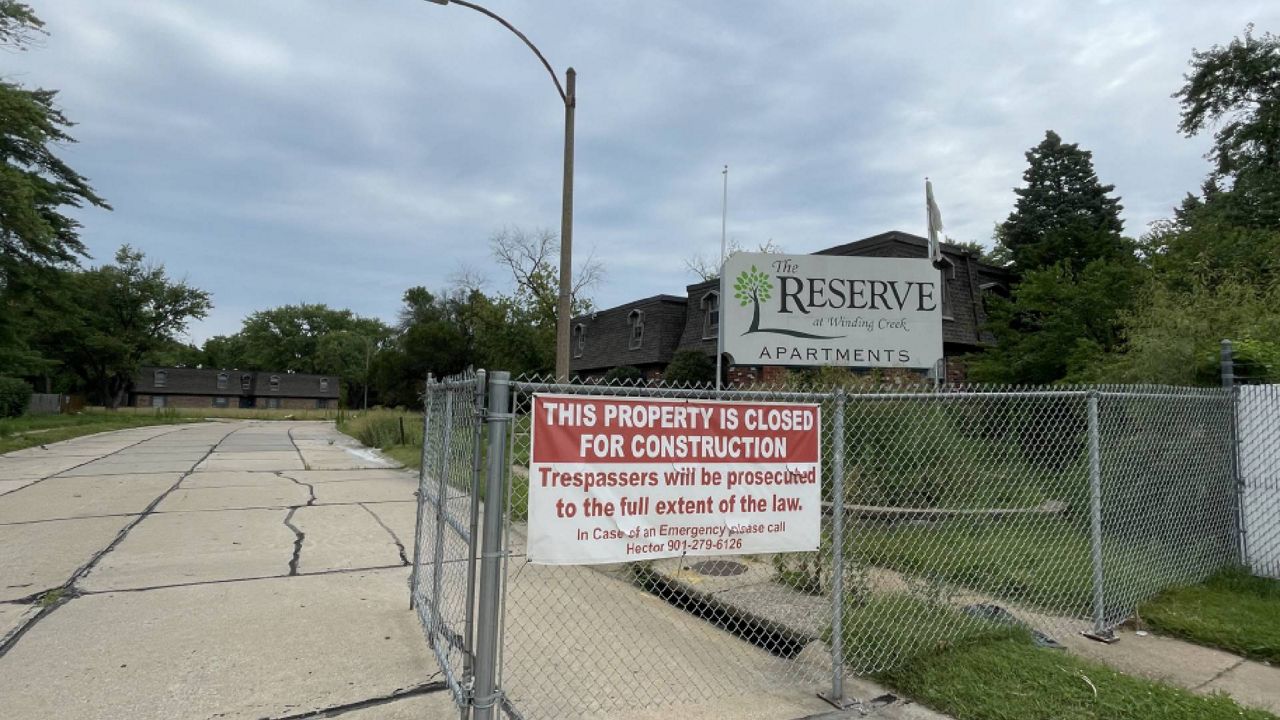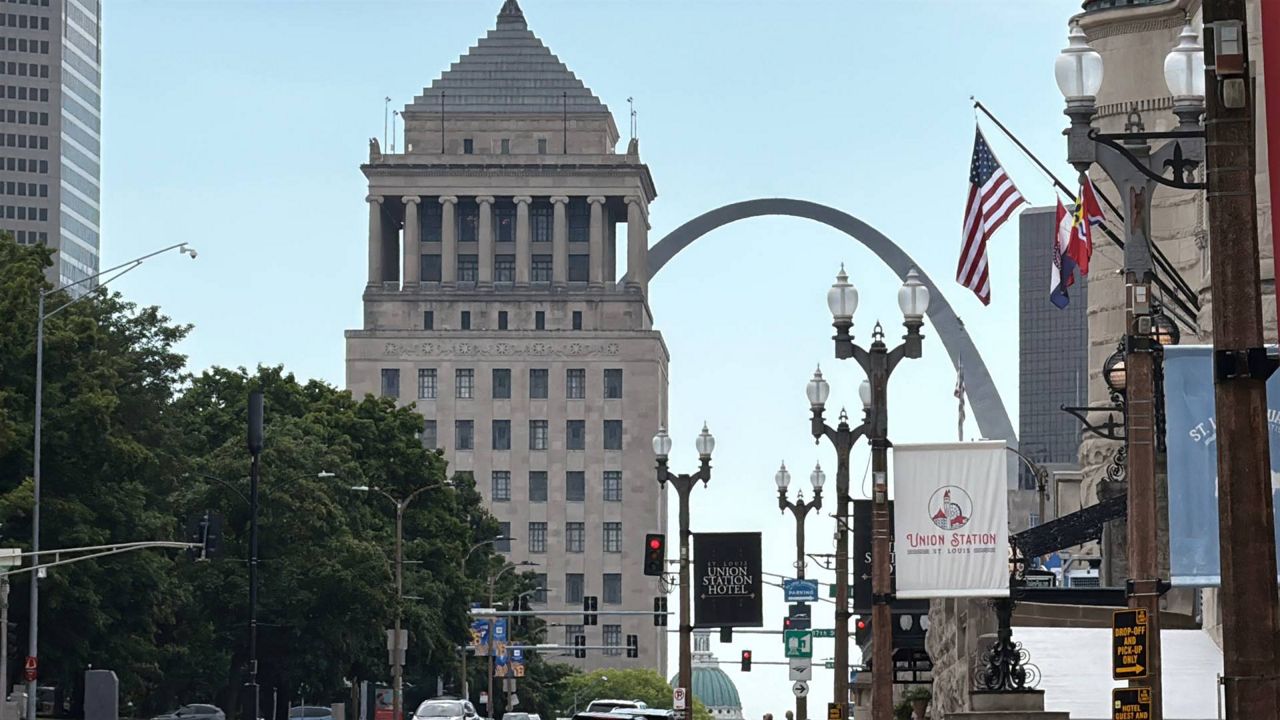ST. LOUIS—One year since record rainfall hit the St. Louis region in a ‘thousand-year’ flash flooding event on July 26 causing millions in damage, the area is still grappling with the after-effects.
According to FEMA, more than 1,600 residences were hit, with 946 seeing major damage.
It was starkly clear in Hazelwood on July 26, when 130 people were rescued from a flooded apartment complex. The next day, The Reserve at Winding Creek was declared “unfit for occupancy.” Residents had a few days to pack up what they could and leave.
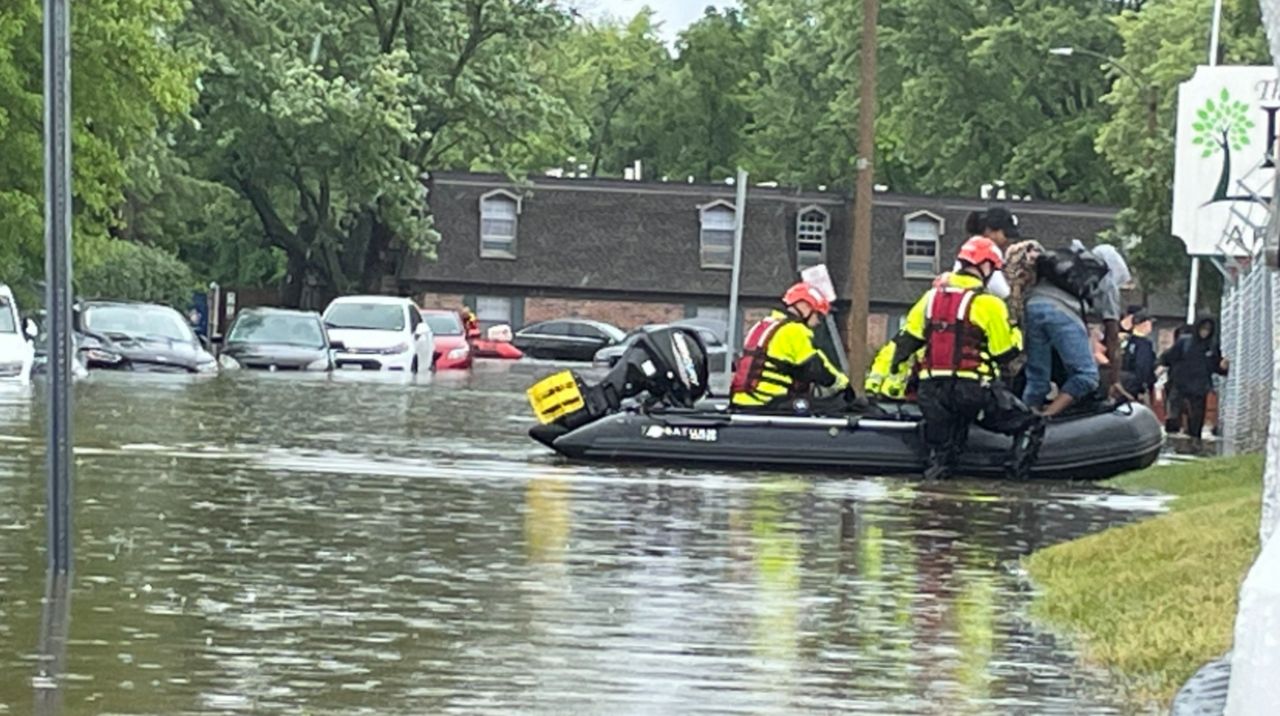
One year later, the property, located off Dunn Road, has largely gone untouched. From behind fences, visitors can easily spot boarded-up windows and abandoned cars.
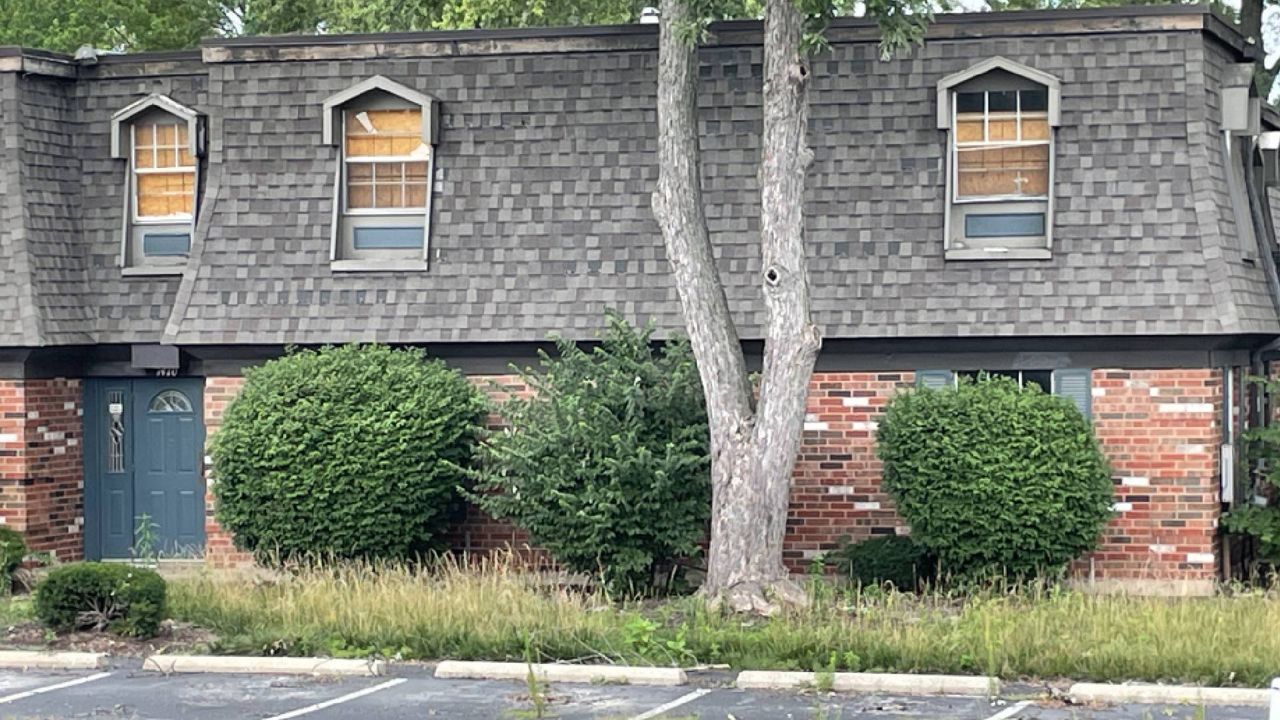
According to Hazelwood City Administrator Matthew Zimmerman, the Memphis-based owner of the complex recently submitted renovation plans that are now under review to see if they comply with the city’s flood plain requirements.
Representatives for Multi-South Management did not return messages seeking comment.
Zimmerman said the city has submitted federal buyout applications for 20 homes under FEMA guidelines. He’s been told that federal officials won’t start reviewing the applications until next month. FEMA cover $1.2 million in buyouts, with Hazelwood chipping in $400,000.
All told, there was $108,500 in damage to Hazelwood city property from the flooding. All but roughly $25,000 of it will be reimbursed by the federal government. The only item still left to be fixed there is a damaged elevator at the Hazelwood Civic Center.
In University City, more than 300 addresses were condemned as a result of the flooding. At least half of those properties still haven’t been restored.
The city has submitted projects for funding from FEMA, ranging from the cost of debris removal and park damage, to damage at the city’s Fire Station 1, library and Centennial Commons. Altogether, it comes in at roughly $6.5 million. The city has received almost $862,000 to date.
The city’s pool at Heman Park just came back online this summer after the damage sustained from the event.
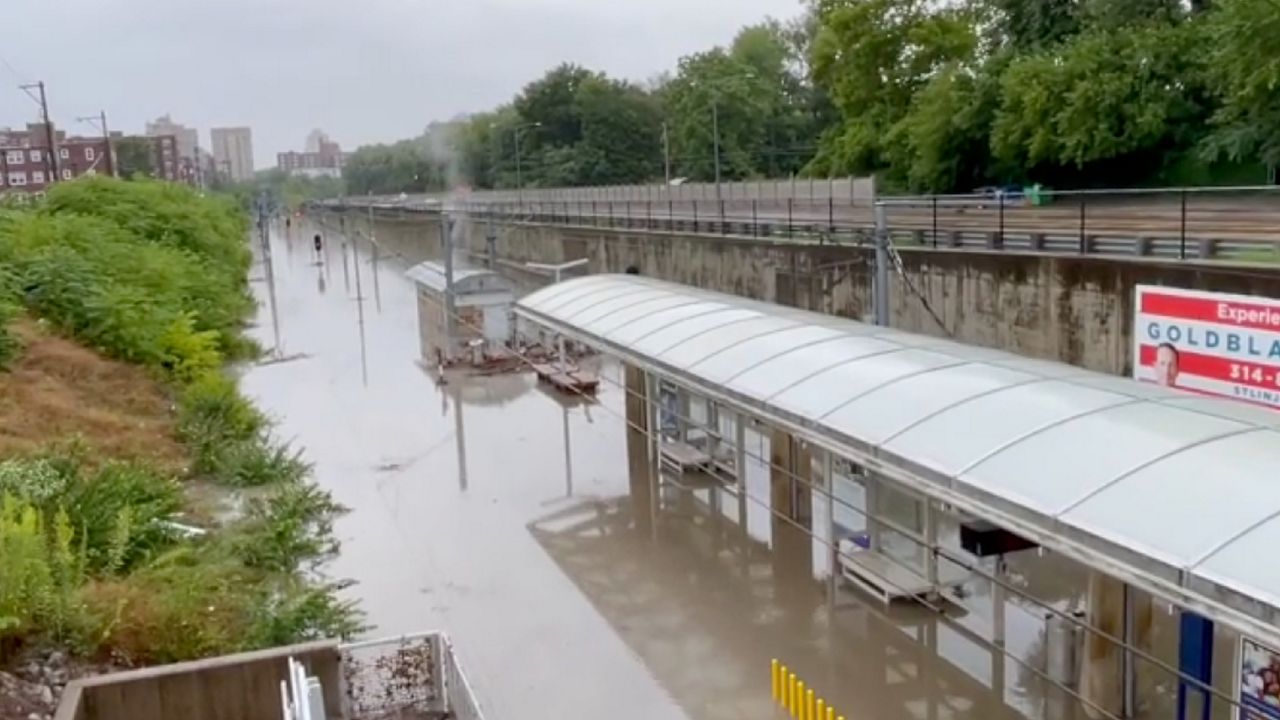
According to Bi-State Development, Metrolink incurred $39 million in losses system-wide, as a result of the flash flooding. One train car was a $10 million loss by itself, but there was damage to elevators, fiber-optic systems and track beds. The signal house at the Forest Park-DeBaliviere station, a key transfer point for riders on the system’s red and blue lines, was underwater with smoke pouring out of it July 26, 2022.
Service was restored to the system months ago, but without the signal house back on line, trains run slower through the area. It’s being re-built, higher and on a steel platform, in hopes of avoiding future flooding. That work should be done in August.
Insurance has covered $17.5 million of the losses. Taulby Roach, President and CEO of Bi-State Development told Spectrum News last week that the agency expects “very shortly” to receive an $18 million check from the Federal Transit Administration for other flood-related reimbursement.
Flash flooding forum
Wednesday night at University City High School, local, state and federal officials, along with scientific experts and others, including the head of the Metropolitan Sewer District, will talk about what’s been done to reduce flooding dangers and answer questions about what’s being done to plan for the future. The 7 p.m. event is free but registration is required.
MSD’s role in future flood response could come into more focus as early as next spring. The agency said it identified $700 million in flooding and erosion projects, but said it doesn’t have the money or the publicly approved authority to do the work. An independent rate commission is studying a potential rate increase, with a recommendation expected in September. A public vote could come next April.





